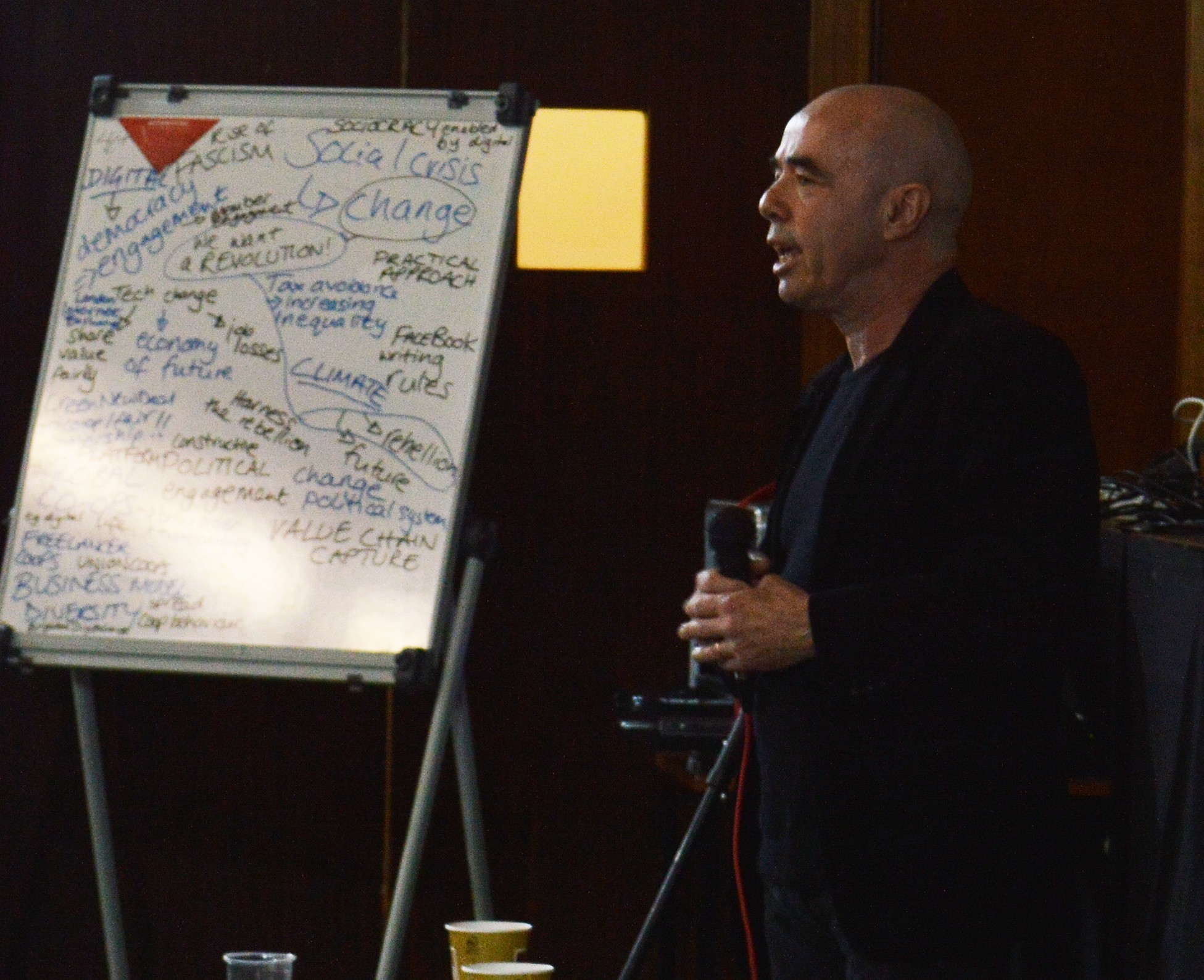The huge shifts in economic power and working patterns ushered in by the internet age present major challenges to 21st century workers – but could also empower them, say co-operators.
Speaking at the recent Ways Forward 7 conference in Manchester, Shaun Fensom – whose involvement in the co-op movement includes a role at Tameside Digital Infrastructure Co-operative (TDIC) – said the tech revolution offers “opportunities for participation and engagement … and for innovation. It might be true that sociocracy is more feasible in the digital world”.
In turn, co-operation can bring “order and equity” to the counter the upheaval of the digital transformation, which has allowed platforms like Uber and Airbnb to “exploit and extract value in the way capitalism has never done before”.
Related: Unicorn Grocery discusses sociocracy at Ways Forward
But Mr Fensom said the movement needed to go further than just developing platform and freelancer coops, but developing “the notion of resource sharing”.
He said the London Internet Exchange could be “the most important co-op in the world – it’s a crucial part of the global internet structure. It’s structured as a mutual but who knows that? How much engagement does it have with the movement?”

Other examples are the Brighton Digital Exchange – a co-op made up of conventional businesses which share resources. “Forming a co-op together has subverted them and got them thinking about new ways of doing business,” said Mr Fensom.
Meanwhile the Tameside Digital Infrastructure Co-op showed how the movement could “own more of the value chain”.
“We have to be flexible about who the stakeholders are,” he said, with a nod to Virgin Media, the latest member of TDIC. “We need massive infrastructure development as 5G and electric vehicle charging come online. There’s opportunity for shared infrastructure: private companies can use it but it is co-operatively owned.”
Pat Conaty, a research associate at Co-operatives UK, said the digital revolution had broken the economic system, creating the need for alternative economic strategies.
“Other periods of crisis saw people talk about worker ownership and control,” he said. “We have a broken system of housing, a broken system of work.”
The “feudalistic late capitalism” of the 21st century had forced workers into self-employment, living in poverty, with no rights, and forced to carry all the risks and none of the benefits of digital enterprise.
To counter this “predatory” market, he said, the co-op movement needs money – which could come from community banks and community finance, by allowing credit unions to leverage pension finance, or by setting up people’s banks.
“If we’re going to expand industrial democracy we have to have the tools,” he added, giving the example of Italy whose financing mechanisms mean it has 2,500 worker co-ops – compared to just 500 in the UK.
The rise of data – “the new oil” – has made this need to democratise the economy more vital, he warned, and data co-ops and open data development could offer an alternative to the “outrageous” exploitation by tech giants.

